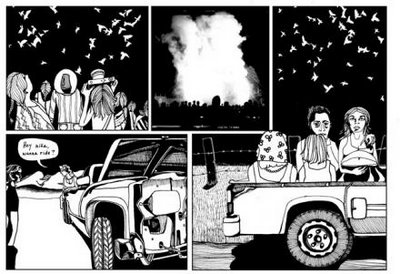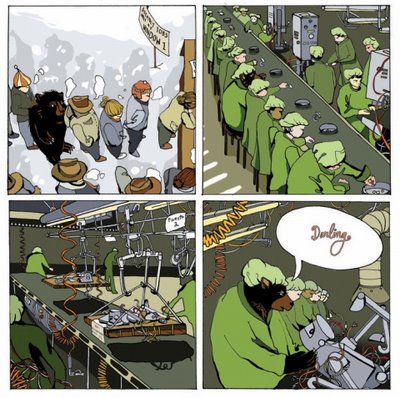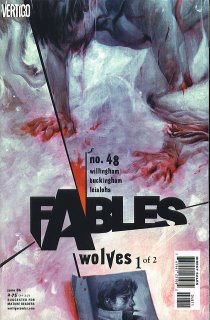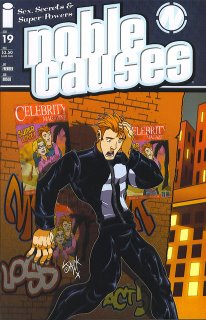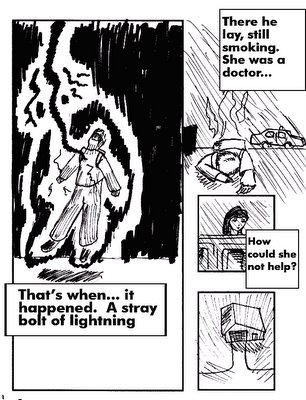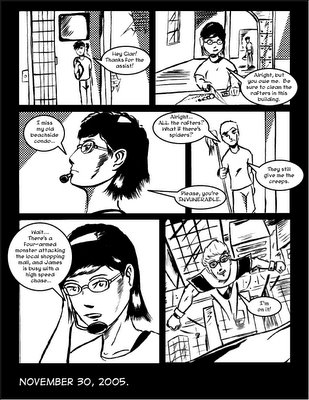This Comic Is Good - The Portent #2
The basic concept of the series is that Milo is presumed to be a "Chosen One" who is there to save the day from the big bad. However, there is something a bit...off about Milo.
Meanwhile, there is something seriously wrong with one third of their little party (a young witch, Milo and an aged guardian of the coven of witches).
Here are some samples of Bergting's excellent, Mignola-esque artwork (courtesy of theportent.com).
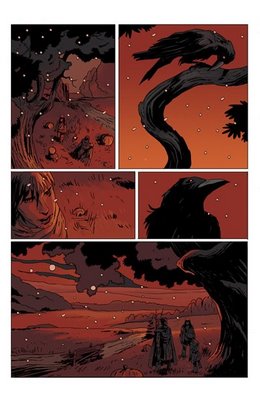

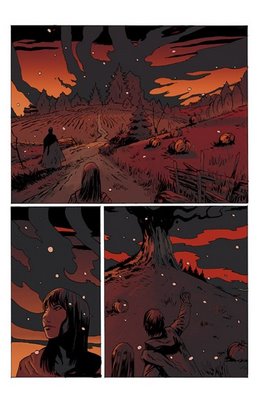
Nice stuff, no?
I think, if #1 and #2 were released as a prestige format comic, it would have really rocked people's socks off, but on its own, #2 works quite well.
And it looks like #3 will be filled with more fantasy-inspired coolness.
I can't wait.
